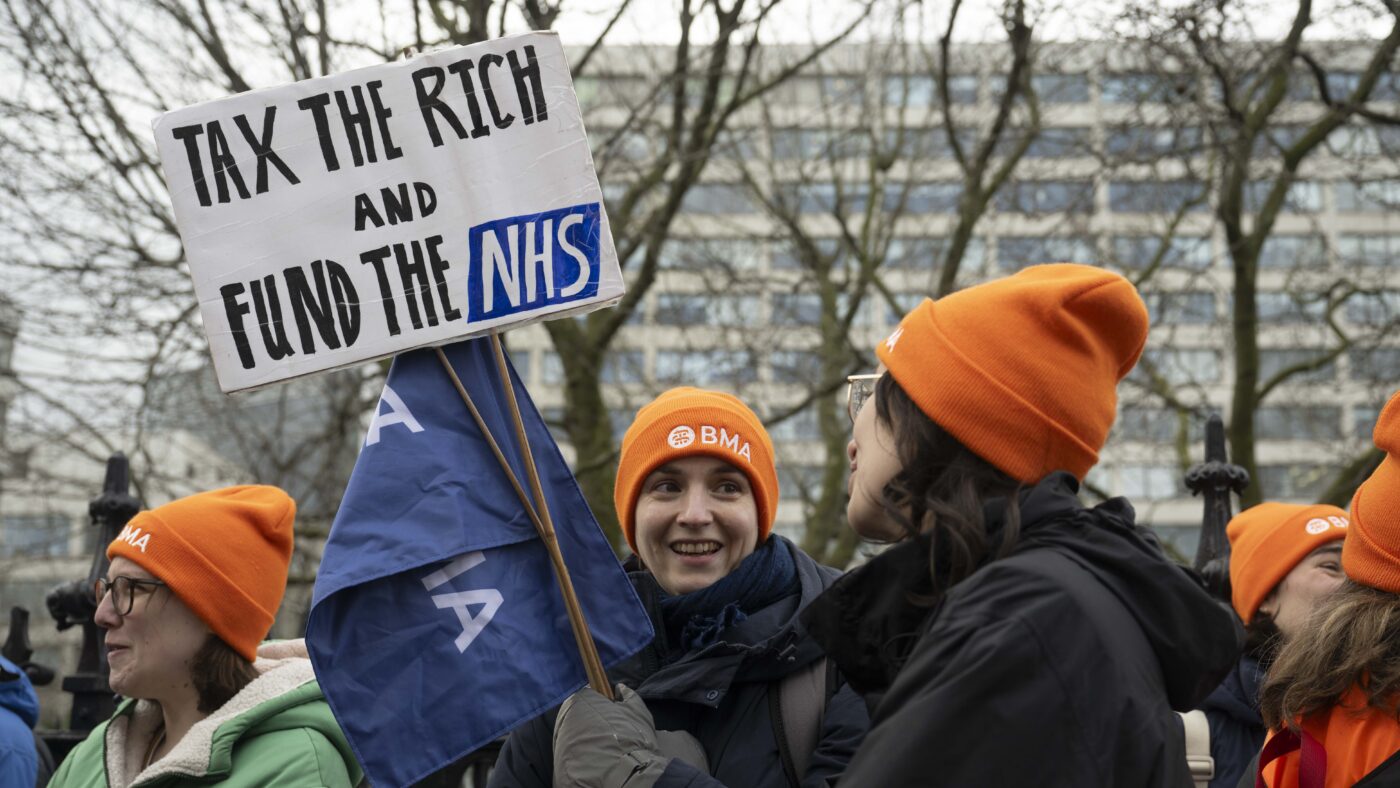There will be many headaches awaiting Keir Starmer if, as seems almost certain, he becomes Prime Minister next Friday. But none will be quite so immediate as the junior doctors’ strike. For the BMA to walk out before a new government has even had a chance to negotiate with it is a pretty clear statement of intent. The junior doctors are sticking two fat fingers up at Starmer’s warning that he will not be able to offer them anything like the 35% pay rise they have been demanding for months.
But the junior doctors are really just a tip of a far larger iceberg.
For years, Labour has been spinning the narrative that the Conservatives have been following an ‘austerity’ programme. Labour has pushed this attack line in spite of obvious evidence to the contrary: that the government has been spending far more than it raises in revenue. Indeed, no UK government has balanced the books in 22 years. Every year we have had a deficit which has steadily built up a cumulative debt equivalent to almost 100 percent of GDP. That is a very strange definition of ‘austerity’.
Yet by pushing this line for the past 14 years, Labour has built up a large expectation on the part of public sector unions, as well as quangos and other elements of the public sector. Following the anticipated defeat of the Conservatives and the arrival of a Labour Prime Minister in Downing Street, all these interest groups will be expecting a large payday.
It doesn’t matter how much Starmer, together with his Chancellor Rachel Reeves, protests that there is no money available; the demands for higher pay and more public spending will come thick and fast.
Moreover, Labour has promised to repeal, within 100 days of taking office, the present government’s legislation demanding minimum public service levels on strike days. That will make it far easier for unions to hold the new government to ransom.
Yet while the arrival of a Labour government will inevitably increase the appetite for pay demands, the party hasn’t budgeted for public sector pay rises. In fact, it has promised very little extra money for the NHS at all.
Labour’s manifesto prices in an extra £1.01 billion a year in spending by 2028/29 to fund an extra 40,000 operations, £250 million a year for extra scanners and £125m a year for 700,000 extra dental appointments. That is an extra £1.385bn for the NHS by the end of the next Parliament. In the context of a NHS England budget this year of £164.9bn, this is pigeon-feed.
Labour is going to have to explain why increasing the NHS budget by less than 1% amounts to ending austerity. Moreover, the extra £1.385bn a year is supposed to be focused on employing extra staff and equipment. There is nothing in the spreadsheet allocated for awarding existing staff above-inflation pay rises.
Something is going to have to give. Either a Starmer government will stick to its spending plans, in which case it is going to incur the wrath of its own supporters and will find itself having to deal with a new round of public sector strikes, or the Labour manifesto will turn out to be a false prospectus – and either taxes or borrowing will have to rise sharply in order to satisfy wage demands.
Fed up of trying to negotiate with the NHS and introduce reforms, Tony Blair once claimed he had ‘scars on my back’. Starmer is going to find himself in a rather worse physical state than that as he tries to manage demands and expectations from the BMA’s junior doctors division and other public sector unions. Indeed, he may soon be requiring one of those new scanners to investigate bruises and broken bones.
Click here to subscribe to our daily briefing – the best pieces from CapX and across the web.
CapX depends on the generosity of its readers. If you value what we do, please consider making a donation.


